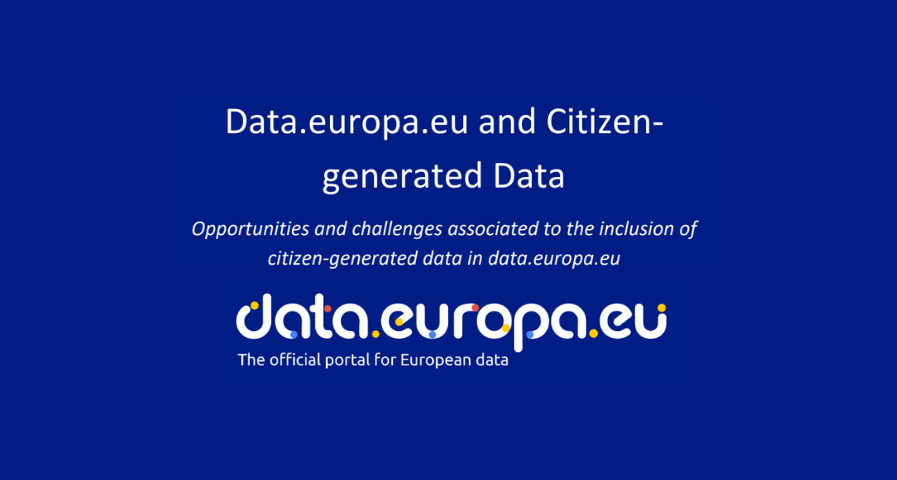Citizen science projects that encourage public knowledge
Fecha de la noticia: 18-09-2024

Citizen science is consolidating itself as one of the most relevant sources of most relevant sources of reference in contemporary research contemporary research. This is recognised by the Centro Superior de Investigaciones Científicas (CSIC), which defines citizen science as a methodology and a means for the promotion of scientific culture in which science and citizen participation strategies converge.
We talked some time ago about the importance importance of citizen science in society in society. Today, citizen science projects have not only increased in number, diversity and complexity, but have also driven a significant process of reflection on how citizens can actively contribute to the generation of data and knowledge.
To reach this point, programmes such as Horizon 2020, which explicitly recognised citizen participation in science, have played a key role. More specifically, the chapter "Science with and for society"gave an important boost to this type of initiatives in Europe and also in Spain. In fact, as a result of Spanish participation in this programme, as well as in parallel initiatives, Spanish projects have been increasing in size and connections with international initiatives.
This growing interest in citizen science also translates into concrete policies. An example of this is the current Spanish Strategy for Science, Technology and Innovation (EECTI), for the period 2021-2027, which includes "the social and economic responsibility of R&D&I through the incorporation of citizen science" which includes "the social and economic responsibility of I through the incorporation of citizen science".
In short, we commented some time agoin short, citizen science initiatives seek to encourage a more democratic sciencethat responds to the interests of all citizens and generates information that can be reused for the benefit of society. Here are some examples of citizen science projects that help collect data whose reuse can have a positive impact on society:
AtmOOs Academic Project: Education and citizen science on air pollution and mobility.
In this programme, Thigis developed a citizen science pilot on mobility and the environment with pupils from a school in Barcelona's Eixample district. This project, which is already replicable in other schoolsconsists of collecting data on student mobility patterns in order to analyse issues related to sustainability.
On the website of AtmOOs Academic you can visualise the results of all the editions that have been carried out annually since the 2017-2018 academic year and show information on the vehicles used by students to go to class or the emissions generated according to school stage.
WildINTEL: Research project on life monitoring in Huelva
The University of Huelva and the State Agency for Scientific Research (CSIC) are collaborating to build a wildlife monitoring system to obtain essential biodiversity variables. To do this, remote data capture photo-trapping cameras and artificial intelligence are used.
The wildINTEL project project focuses on the development of a monitoring system that is scalable and replicable, thus facilitating the efficient collection and management of biodiversity data. This system will incorporate innovative technologies to provide accurate and objective demographic estimates of populations and communities.
Through this project which started in December 2023 and will continue until December 2026, it is expected to provide tools and products to improve the management of biodiversity not only in the province of Huelva but throughout Europe.
IncluScience-Me: Citizen science in the classroom to promote scientific culture and biodiversity conservation.
This citizen science project combining education and biodiversity arises from the need to address scientific research in schools. To do this, students take on the role of a researcher to tackle a real challenge: to track and identify the mammals that live in their immediate environment to help update a distribution map and, therefore, their conservation.
IncluScience-Me was born at the University of Cordoba and, specifically, in the Research Group on Education and Biodiversity Management (Gesbio), and has been made possible thanks to the participation of the University of Castilla-La Mancha and the Research Institute for Hunting Resources of Ciudad Real (IREC), with the collaboration of the Spanish Foundation for Science and Technology - Ministry of Science, Innovation and Universities.
The Memory of the Herd: Documentary corpus of pastoral life.
This citizen science project which has been active since July 2023, aims to gather knowledge and experiences from sheperds and retired shepherds about herd management and livestock farming.
The entity responsible for the programme is the Institut Català de Paleoecologia Humana i Evolució Social, although the Museu Etnogràfic de Ripoll, Institució Milà i Fontanals-CSIC, Universitat Autònoma de Barcelona and Universitat Rovira i Virgili also collaborate.
Through the programme, it helps to interpret the archaeological record and contributes to the preservation of knowledge of pastoral practice. In addition, it values the experience and knowledge of older people, a work that contributes to ending the negative connotation of "old age" in a society that gives priority to "youth", i.e., that they are no longer considered passive subjects but active social subjects.
Plastic Pirates Spain: Study of plastic pollution in European rivers.
It is a citizen science project which has been carried out over the last year with young people between 12 and 18 years of age in the communities of Castilla y León and Catalonia aims to contribute to generating scientific evidence and environmental awareness about plastic waste in rivers.
To this end, groups of young people from different educational centres, associations and youth groups have taken part in sampling campaigns to collect data on the presence of waste and rubbish, mainly plastics and microplastics in riverbanks and water.
In Spain, this project has been coordinated by the BETA Technology Centre of the University of Vic - Central University of Catalonia together with the University of Burgos and the Oxygen Foundation. You can access more information on their website.
Here are some examples of citizen science projects. You can find out more at the Observatory of Citizen Science in Spain an initiative that brings together a wide range of educational resources, reports and other interesting information on citizen science and its impact in Spain. do you know of any other projects? Send it to us at dinamizacion@datos.gob.es and we can publicise it through our dissemination channels.














